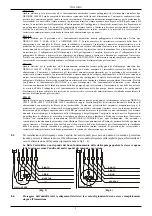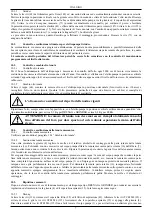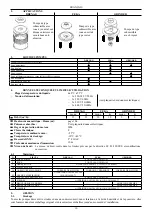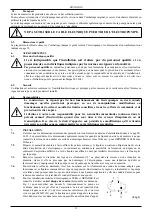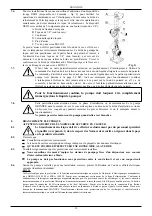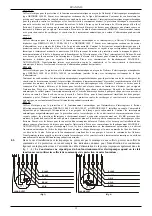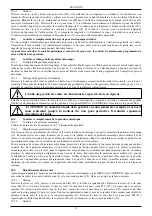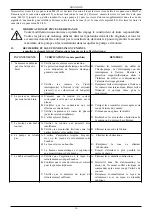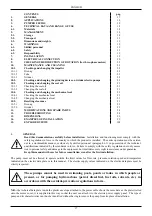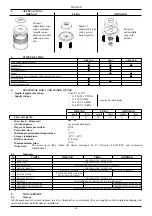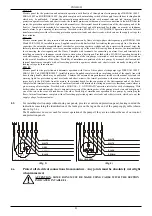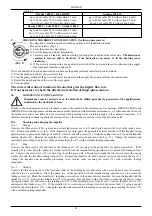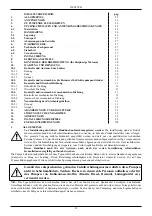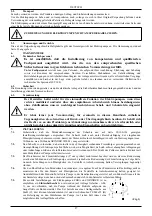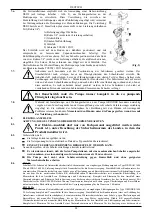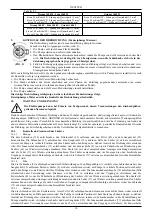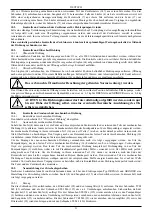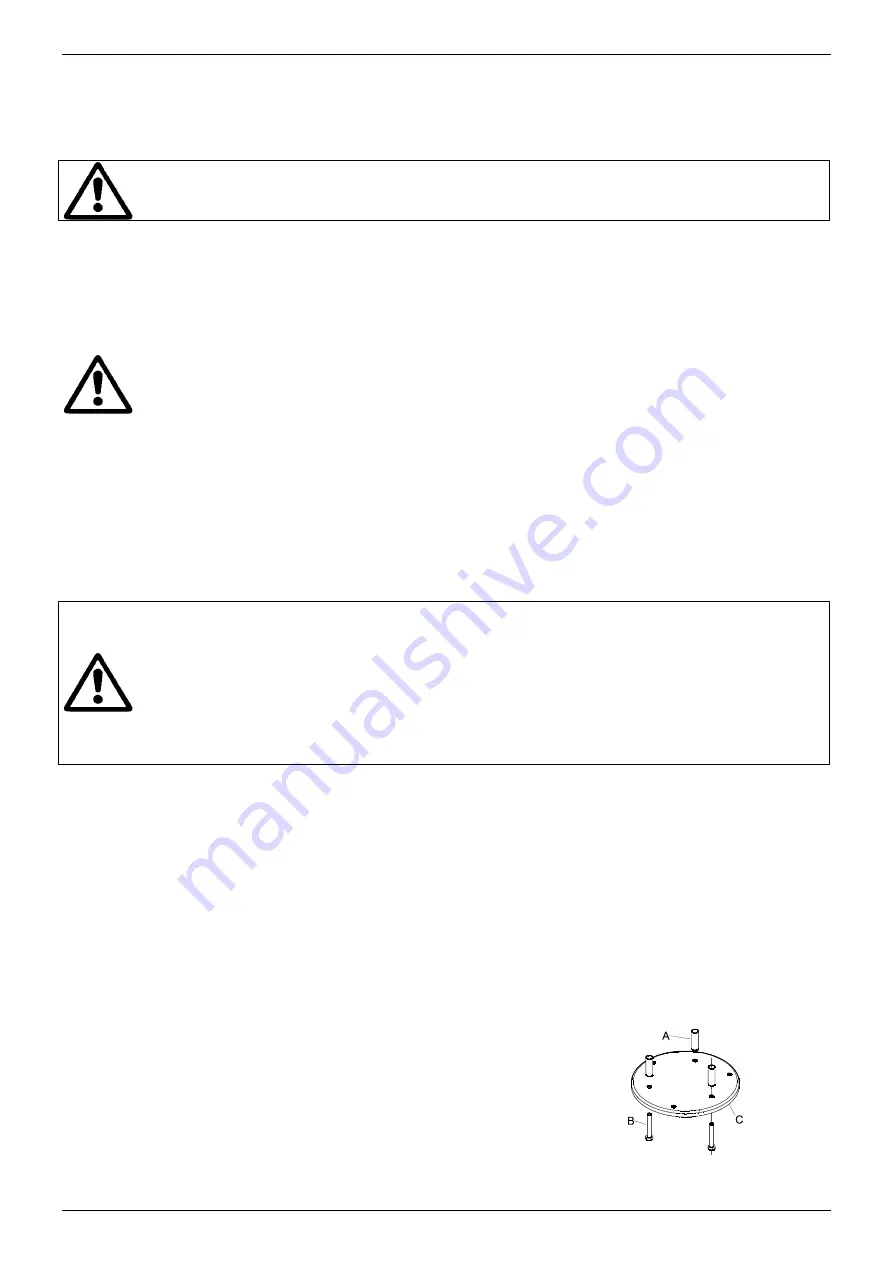
ENGLISH
19
5.2.
Transport
Avoid subjecting the products to needless jolts or collisions.
To lift and transport the electropump, while it is still in its original packaging, use fork-lift trucks and the pallet supplied
standard.
The pumps are provided with a carrying handle which may also be used to lower them into wells or deep holes with a rope or
chain.
NEVER USE THE POWER CABLE TO MOVE THE ELECTROPUMP.
5.3.
Dimensions and weights
The adhesive label on the package indicates the total weight of the electropump. The dimensions are given on page 99.
6. WARNINGS
6.1.
Skilled technical personnel
Installation must be carried out by skilled personnel in possession of the technical qualifications required
by the specific legislation in force.
The term
skilled personnel
means persons whose training, experience and instruction, as well as their
knowledge of the respective standards and requirements for accident prevention and working conditions, have
been approved by the person in charge of plant safety, authorizing them to perform all the necessary activities,
during which they are able to recognize and avoid all dangers. (Definition for technical personnel IEC 364).
6.2.
Safety
Use is allowed only if the electric system is in possession of safety precautions in accordance with the regulations in force in
the country where the product is installed.
6.3.
Responsibility
The Manufacturer does not vouch for correct operation of the pumps if they are
tampered with or modified, run outside the recommended work range and/or without
the use of our control and protection panels described below.
The manufacturer declines all responsibility for possible errors in this instructions
manual, if due to misprints or errors in copying. The company reserves the right to
make any modifications to products that it may consider necessary or useful, without
affecting the essential characteristics.
7. INSTALLATION
7.1.
Ensure that the minimum dimensions of the wells or boreholes comply with the installation drawings on page 99-
100-101. The size of the borehole must be in relation to the quantity of incoming liquid so that the motor is not
subjected to an excessive number of starts (max. 30 per hour - max 20 for GRINDER 1400 M per hour)
7.2.
Arrange the borehole in such a way that any solid parts present in the liquid are forced to flow towards the intake
aperture of the pump, reducing as far as possible the formation of deposits or sediments that would be difficult to
lift. The jet of flowing liquid must not interfere directly with the conveying movement of the pump.
7.3.
Always respect the diameter of the delivery pipes (2" or larger); although a reduction in diameter would not cause
damage to the pump, it could cause a reduction of the flow rate, thus leading to clogging when pumping dirty
liquids.
7.4.
To reduce backflow to a minimum it is advisable to fit a check valve on the delivery, suitable for operation with
dirty liquids. If the pump is used for working in a sewer, the delivery pipe must rise to a height higher than that of
the manifold, then go back down to enter the manifold.
7.5.
For mobile installations of FEKA and GRINDER electropumps we advise
the use of the
Support disc kit
(available on request - Fig. 1) to prevent
the pump from sinking into the soil during operation due to the effect of
suction. The kit is composed of a a steel support disc (C), three spacer
columns (A) and three screws TE M8x55 (B) for anchoring to the feet of
the pump. Always do everything possible to provide a firm base.
(Fig. 1)
Summary of Contents for DRENAG 1000-1200
Page 95: ...65 2 A B C D B C D 3 A B B 4 A B C A B C 5 A B C A B C...
Page 120: ...90 4 A B C A B C A A B C A B C...
Page 133: ...103 GRINDER...

